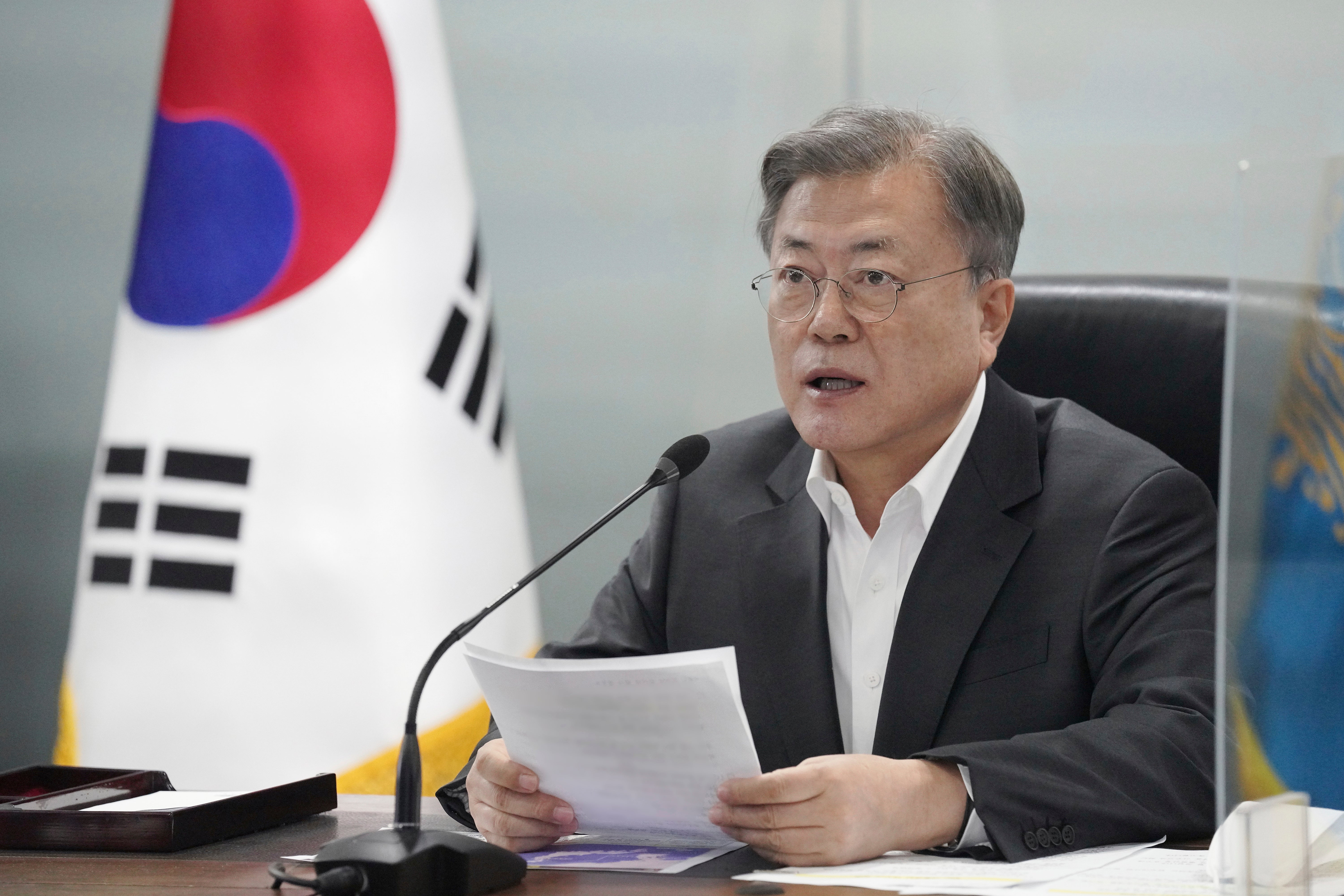South Korea conducts live missile drill after ICBM launch from North
North Korea earlier test-fired a suspected intercontinental ballistic missile

Your support helps us to tell the story
From reproductive rights to climate change to Big Tech, The Independent is on the ground when the story is developing. Whether it's investigating the financials of Elon Musk's pro-Trump PAC or producing our latest documentary, 'The A Word', which shines a light on the American women fighting for reproductive rights, we know how important it is to parse out the facts from the messaging.
At such a critical moment in US history, we need reporters on the ground. Your donation allows us to keep sending journalists to speak to both sides of the story.
The Independent is trusted by Americans across the entire political spectrum. And unlike many other quality news outlets, we choose not to lock Americans out of our reporting and analysis with paywalls. We believe quality journalism should be available to everyone, paid for by those who can afford it.
Your support makes all the difference.South Korea's military has conducted a live-fire test of multiple ballistic and tactical missiles after North Korea test-fired an intercontinental ballistic missile (ICBM) launch for the first time in five years.
The South test-fired an array of smaller ballistic and air-to-ground missiles to demonstrate it has the "capability and readiness" to precisely strike missile launch sites.
The South Korean joint chief of staff in a statement said that the test confirmed the military was capable of a precision strike if needed against the location of any North Korean missile launch and its command system.
Following the North's projectile launch, South Korean president Moon Jae-in convened an emergency national security council meeting and accused Kim Jong-un of breaking a moratorium on launching intercontinental ballistic missiles.
South Korean deputy national security advisor Suh Choo-suk condemned the launch as "a clear violation of UN Security Council resolutions, and a reversal of the moratorium on ICBM launches, which North Korea had promised to the international community".
According to South Korean authorities, the missile was launched from near Sunan, where Pyongyang's international airport is located. The missile landed in the sea 170km west of Japan's northern prefecture of Aomori and inside Japan’s exclusive economic zone, authorities said.
Condemning the launch, Japan's prime minister Fumio Kishida called the act "outrageous and unforgivable".
This was the North’s first alleged full-capability launch of an ICBM in five years after Mr Kim threatened to resume such testing following stalled denuclearisation talks with the US in 2019.
The US joined North Korea's neighbours in “strongly condemning” the long-range ballistic missile test.
"This launch is a brazen violation of multiple UN Security Council resolutions and needlessly raises tensions and risks destabilising the security situation in the region," White House spokesperson Jen Psaki said in a statement.
Makoto Oniki, the Japanese vice defence minister, said the projectile appeared to be a new model of an intercontinental ballistic missile, given it flew for about 71 minutes to an altitude of about 6,000km and a range of 1,100km from its launch site.
Analysts believe North Korean leader is trying to expand the nuclear reach over the American land. "The Kim regime is determined not only to keep South Korea hostage to military threats that can evade Seoul’s missile defences and preemptive strike capabilities; it aims to expand its nuclear reach over the American homeland to deter Washington from coming to the defence of U.S. allies," said Leif-Eric Easley, professor at Ewha University in Seoul.
The North has conducted an unprecedented number of missile launches in 2022, with Thursday’s launch being the 12th this year.
According to the US and South Korean militaries, the North is laying the ground to test-fire its largest intercontinental ballistic missile (ICBM) Hwasong-1 first unveiled during a military parade in 2020.
At least two recent tests conducted on 27 February and 5 March featured the Hwasong-17 system, but did not demonstrate its full ICBM range or capability, US officials said.
On 16 March, the North launched a suspected missile that explode shortly after liftoff over the capital.
Join our commenting forum
Join thought-provoking conversations, follow other Independent readers and see their replies
Comments